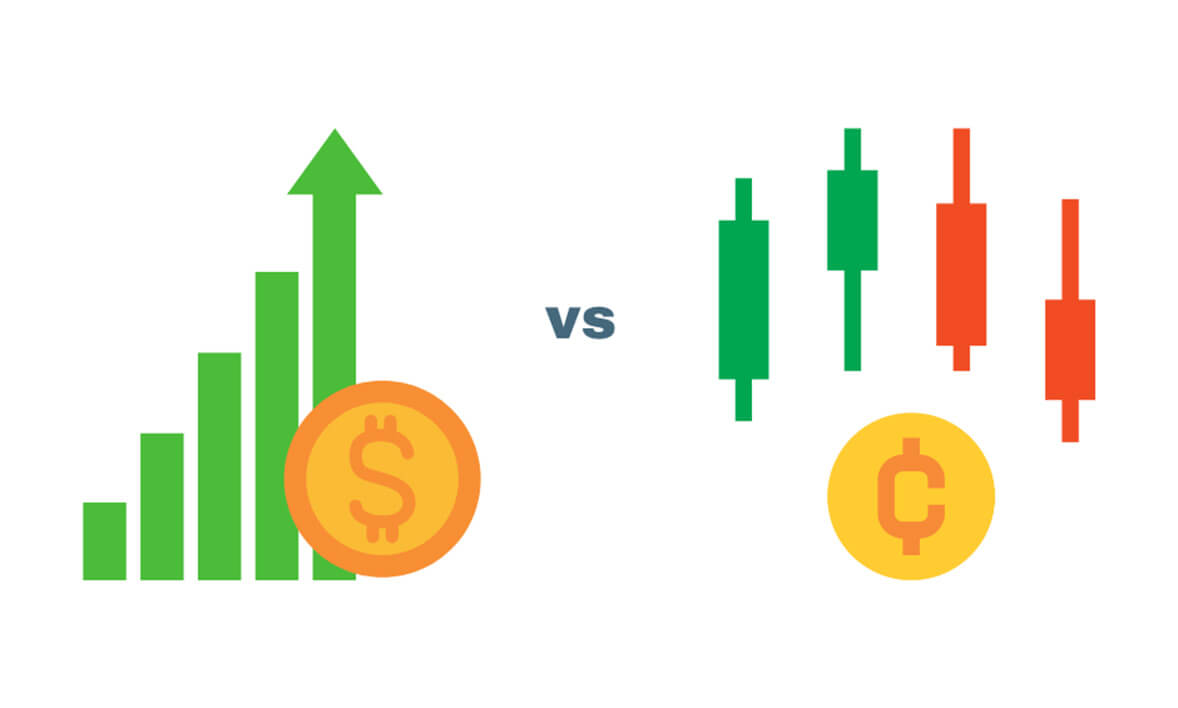Investing vs Trading: Navigating the Path to Optimal Financial Success
Investing and trading are two approaches adopted in the financial markets to generate profits. There are votaries and detractors of both methods. Read here to know more.
In his latest letter to Berkshire Hathaway shareholders, the guru of investing, Warren Buffett, wrote, “The world is full of foolish gamblers, and they will not do as well as the patient investor.” He was quoting his colleague and friend Charlie Munger.
While that is received wisdom, we continue to face the conundrum: investing or trading? Which one is the ticket to the good life?
It's not as straightforward as you might think. It’s more like choosing between running a marathon or a sprint.
They're different races, each with its own set of rules, strategies, and finish lines.
Understanding Investing
Investing is purchasing assets that you believe will increase in value over time. This could include stocks, bonds, mutual funds, or real estate. The philosophy here is 'buy and hold.'
Investors look to build wealth gradually, banking on the power of compound interest and market trends over the years.
Understanding Trading
Trading, in contrast, involves the frequent buying and selling stocks, commodities, or other instruments.
Day trading, swing trading, and algorithmic trading are popular forms; each represents different time horizons and strategies.
The goal is to capitalise on short-term market fluctuations. Successful traders make their fortunes not by waiting for the investment cake to bake but by tasting the batter frequently.
An Interesting Statistic
A recent finding by market regulator the Securities and Exchange Board of India (SEBI), based on a study, was that only one in 10 traders made profits trading in Futures and Options in FY22.
That should provide an idea of the success ratio in trading. Of course, this was about trading in derivatives.
Magic of Compounding
Compounding, described as the "eighth wonder of the world", is a key component of investing but not available in trading.
It refers to the process where the returns on an investment, over time, themselves earn returns.
Over an extended period, compounding can exponentially increase the value of investments.
Traders, due to their short-term approach, miss out on the magic of compounding.
Comparing Investing and Trading
Choosing between trading and investing is akin to choosing between a marathon and a sprint.
Each requires different levels of commitment, risk tolerance, skillset, and emotional fortitude.
Investing is generally more passive and less stressful but requires patience and substantial initial capital.
Trading, on the other hand, can be an emotional roller-coaster, requiring constant market monitoring, but it can deliver quick returns if done right.
Market volatility presents risks and opportunities.
Summing up
What is your temperament?
Can you commit time, and how much are you willing to risk? Do you have patience, or do you like things to happen quickly? What financial resources do you have?
These questions can help you determine if you should pursue trading or investing.
Fund manager and author Morgan Housel states it succinctly in his best-selling book The Psychology of Money "Doing well with money has a little to do with how smart you are and a lot to do with how you behave. And behaviour is hard to teach, even to really smart people."
So, is investing or trading best suited for financial success? They're different tools for different situations.
You can either do your own research or consult a SEBI-registered financial advisor who can help you select the appropriate approach.

